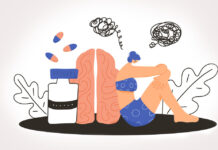Open Season on Mental Patients
No one is safe from psychiatry’s project of medicalizing every variation of human emotion and behaviour, especially people viewed with suspicion and contempt by the powerful.
Behaviorists Must Confront Psychiatry’s Pseudoscience
Despite the well-documented greater effectiveness of behavior therapy, psychiatry's choice of treatment for mental disorder heavily favors drugs.
Psychiatry’s Medical Model: How It Traumatizes, Retraumatizes & Perverts Healing
The beginning of healing from trauma requires stripping power away from disconnecting violators like psychiatry's medical model.
The New York Times Comments Section: A Literary Rorschach Test for the Masses
Bergner’s piece in The New York Times challenged the illusions of psychiatry. That made some people angry, outraged, or scared. The result is their comments section.
A Hopelessly Flawed Seminar in “The Lancet” About Suicide
The Lancet seminar is one of the most misleading articles about suicide I have ever seen. Depression pills double the risk of suicide in children and adolescents.
A Different Psychiatry Is Needed for Discontinuing Antidepressants
The problems related to the use of antidepressants cannot be solved by an oversimplified psychiatry brainwashed by the pharmaceutical industry.
The Shady World of Shock Treatment
The risk of undergoing shock treatment remains. As the FDA warns, “The long-term safety and effectiveness of ECT treatment has not been demonstrated.”
The Alternative to Psychiatry Has Been Discovered—We’re Just Not Using It
The psychiatric solution and the psychological solution to psychopathology are fundamentally incompatible with each other.
Peer Support Research: Is It Time Yet?
Researchers could be doing a better job of defining peer support. We could also have a better understanding of what the “positive effects'' of peer support really are.
The Emperor’s New Clothes: The Upcoming NICE Depression Guidelines
The new NICE depression guideline is a reflection of the field: you don’t really know what you’re doing, and you lack confidence that it’s doing any good.
Psychiatry in Aeromedicine: Who Is Denied the Privilege of Piloting an Aircraft?
Urging aviation students at the summit to seek help if they need it is a noble cause, but it sounds hollow when the FAA regulations are built on stigma.
From Horse Ranch to Home Ground: Healing Families via Telehealth
Since COVID, NISAPI has transitioned our collaborative therapy setting from barns and fields to kitchens and living rooms. Our clients report similar positive outcomes with telehealth as in person.
Unity in Diversity: Rethinking Mental Health and Our Connection to Nature
Meditation, walks in nature, and artistic and musical activities: These all have something in common—they have the power to dissolve the boundaries between us.
What Is the Role of the Prosumer in the Mental Health System?
I believe "prosumer" is the best term to describe consumers of mental health services who are also traditional professionals in mental health care.
ADHD: The Money Trail
Doctors, drug companies, and the news media have profited from skyrocketing rates of diagnosis and drugging for ADHD, and the law has created a perverse set of incentives for parents and children which favor the ADHD label.
Inner Fire Is the Only Place I Would Go for Emotional Distress
At Inner Fire, people share meals, take walks, clean, and garden, learning how to live again after being disconnected from others, nature, and our authentic selves.
Mad by Design: An Ancient Paradigm of Psychiatric Thought
To propose that madness may have a function is not to deny the toll it may exact on people, but to help us understand what problem it is meant to solve.
Thomas Insel and the Future of the Mental Health System
Insel says he has the answer—the same emphasis on neuroscience and genetics, which he admits led to no improvements under his leadership at NIMH.
Ending Coercive “Help”: A Review of “Reimagining Crisis Support”
The book presents a thoughtful, comprehensive plan for replacing the current coercive medical model of crisis “support” with something that actually helps.
An American History of Addiction, Part 10: My Strange Path to Recovery
Every drinking “experiment” I performed was already tainted. Every time I would try, I became angry and resentful, feeling like I had been tricked into joining a cult.
An American History of Addiction, Part 9: How I Became an “Addict”
My current allotment of Xanax had just run out, and I remembered feeling the last dose wearing off. My heart had started racing and I had become fidgety.
Apples and Oranges in Peer Support Research
Discussing a meta-analysis on the effectiveness of peer support: The co-opting of peer support specialists into roles that don’t fit with their purpose is a big problem.
Saving Lives or Cementing Stigma? A Review of “Just Like You…”
In my experience, episodes of anxiety and depression dwindle in the face of hope and empowerment, while broken-brain narratives lead to deeper despair.
Mad in (S)pain
A Q&A with the team members who edit and run Mad in (S)pain: "There must be a radical change in the way mental suffering is understood and cared for."
The Dramatic Results of John Weir Perry’s Diabasis House Program
John Weir Perry’s Diabasis House Program both built on and exceeded Jung’s previous understanding of psychosis.

































